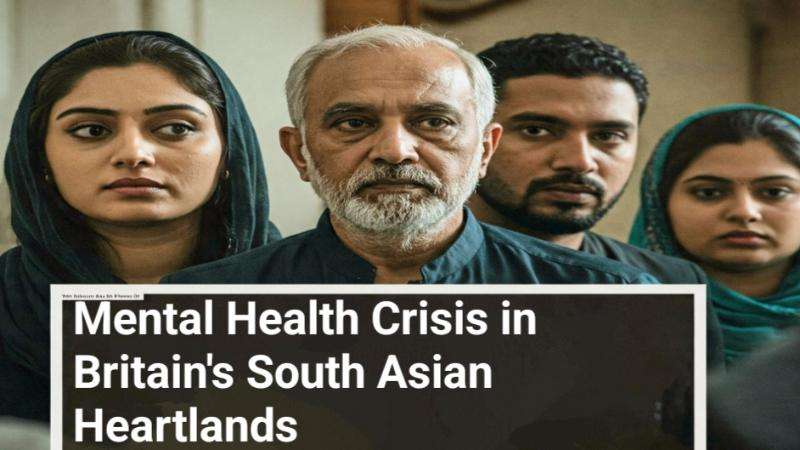Beneath the vibrant surface of Britain’s Muslim, South Asian, and British Bangladeshi communities, a silent epidemic is raging: a mental health crisis exacerbated by cultural stigmas, systemic inequalities, and a profound lack of accessible, culturally sensitive support. While these communities contribute richly to the nation’s social and economic fabric, the invisible burden of mental illness often goes unaddressed, leaving individuals and families to suffer in isolation, Daily Dazzling Dawn understand.
“Within our communities, speaking about mental health is akin to admitting weakness,” explains Dr. Fatima Khan, a clinical psychologist specializing in South Asian mental health. “It’s seen as a ‘family shame,’ something to be swept under the rug. This cultural taboo creates a formidable barrier to seeking help.”
The issue is multifaceted. Language barriers pose significant challenges, with many individuals unable to access mainstream mental health services due to a lack of interpreters or culturally nuanced care. Mainstream healthcare providers often lack the cultural competency to understand the unique stressors faced by these communities, leading to misdiagnosis or ineffective treatment.
“We see a disconnect between the services offered and the needs of our community,” says Iqbal Hussain, a community leader in Bradford. “Many of our elders believe mental health is a spiritual issue, not a medical one. This belief, while rooted in faith, prevents them from seeking professional help.”
Socioeconomic disparities further compound the problem. Poverty, unemployment, and the lingering trauma of racism and discrimination create a breeding ground for mental health struggles. The constant pressure to assimilate while maintaining cultural identity adds another layer of complexity.
“We carry the weight of historical trauma,” explains activist, Sumaya Rahman. “The microaggressions, the systemic racism – it takes a toll on our mental well-being. But we’re told to be strong, to ‘just get on with it.’”
However, a groundswell of change is emerging. Community-led initiatives are spearheading efforts to dismantle the stigma and bridge the gap in mental healthcare.
Culturally Competent Services: Organizations like “Saathi Mind” are providing therapy and counseling in community languages, incorporating cultural and religious perspectives.
Peer Support Networks: Safe spaces are being created for individuals to share their experiences, fostering a sense of belonging and reducing isolation.
Faith-Based Partnerships: Religious leaders and community workers are collaborating to integrate mental health awareness into religious teachings and practices.
Advocacy and Policy Reform: Grassroots campaigns are pushing for increased funding for culturally sensitive mental health services and training for healthcare professionals.
Youth Empowerment: Young activists are leading the charge in challenging traditional stigmas and promoting open conversations about mental health.
“We need to empower our youth to be the agents of change,” says Yasmin Ali, a mental health advocate. “They are the generation that can break the cycle of silence and create a future where mental health is prioritized.”
The fight for mental well-being within Britain’s South Asian communities is a long and arduous one. But with each conversation, each initiative, and each act of courage, the silence is being broken, paving the way for a more compassionate and supportive future.
Statistics reveal a troubling picture of mental health disparities within Britain's South Asian communities. Studies consistently demonstrate higher rates of common mental disorders, such as depression and anxiety, compared to the general UK population. For example, a report by the Race Equality Foundation highlighted that South Asian women are at increased risk of experiencing mental health problems, often due to factors like isolation and cultural pressures. Furthermore, research from the Centre for Mental Health indicates that individuals from Black, Asian, and Minority Ethnic (BAME) backgrounds, including South Asian communities, are less likely to access mental health services, despite often experiencing higher levels of need. This disparity is further compounded by socioeconomic factors, with individuals from deprived areas within these communities facing significantly elevated rates of psychological distress, as evidenced by data published by Public Health England. These figures underscore the urgent need for culturally competent mental health services and targeted interventions to address the specific needs of Britain's South Asian population.








.svg)



